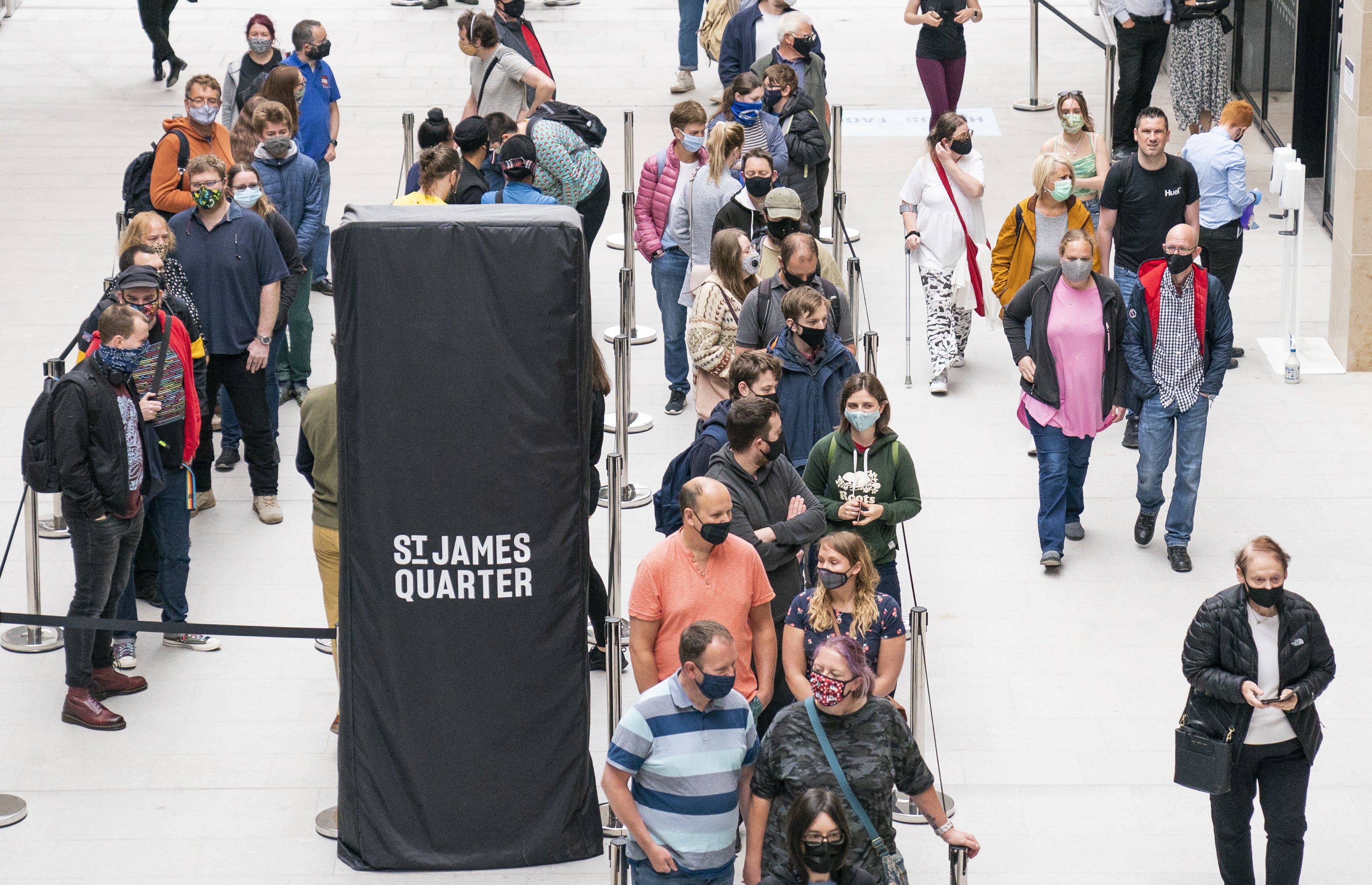Coronavirus puts brakes on economy as growth in Scotland slows, bank says
While business activity in Scotland increased at the end of last year, the rise was the weakest since growth returned 10 months ago.

Your support helps us to tell the story
From reproductive rights to climate change to Big Tech, The Independent is on the ground when the story is developing. Whether it's investigating the financials of Elon Musk's pro-Trump PAC or producing our latest documentary, 'The A Word', which shines a light on the American women fighting for reproductive rights, we know how important it is to parse out the facts from the messaging.
At such a critical moment in US history, we need reporters on the ground. Your donation allows us to keep sending journalists to speak to both sides of the story.
The Independent is trusted by Americans across the entire political spectrum. And unlike many other quality news outlets, we choose not to lock Americans out of our reporting and analysis with paywalls. We believe quality journalism should be available to everyone, paid for by those who can afford it.
Your support makes all the difference.Fears of the resurgent coronavirus have put the brakes on the UK’s economic recovery, the Royal Bank of Scotland has said, with Scotland’s private sector growing at the slowest rate in almost a year.
While business activity in Scotland increased in December, the rise was the weakest since growth returned 10 months ago, according to the bank’s latest business activity index.
Malcom Buchanan, chair of the Scotland Board at the Royal Bank of Scotland, said: “Scotland’s private sector grew at the weakest rate for 10 months as Omicron concerns weighed on client demand and supply issues continued to hinder companies, particularly in the manufacturing sector.”
The bank’s said its seasonally adjusted index – a measure of combined manufacturing and service sector output – was 52.7 in December, down sharply from 55.9 in November.
A number below 50 represents an overall decrease, while above 50 represents growth.
Services saw a slower rate of expansion in December, while factory production declined for the first time since last September, the Royal Bank of Scotland analysis said.
Mr Buchanan added: “Inflationary pressures also remained severe in December, although the latest data pointed to a slight easing of pressure as both cost burdens and average charges increased at slightly reduced rates.
“Nonetheless, firms remained upbeat towards activity over the next 12 months, with Scottish companies expecting Covid-19 related issues to subside and demand to improve as we enter 2022.”
Sebastian Burnside, the bank’s chief economist, said: “The resurgence of the pandemic in December put the brakes on the UK’s economic recovery, with each nation and region feeling the effects as people changed their behaviour in response to rising cases.
“But despite the similarities to previous waves business activity levels seem to have been more resilient this time, due in part to comparatively lighter restrictions.”
For the ninth time in as many months, Scottish companies recorded an increase in employment in December and analysis at the bank said the latest rise could be efforts to alleviate capacity pressures and scale up operations in expectation of stronger sales in the coming months.
Mr Burnside said the jobs market was a “bright spot” across the UK in December, but the rate of job creation was the slowest since April and in Scotland there was a much slower upturn in employment than the UK-wide average.
“Although in many instances the pace of job creation slowed, rates of employment growth generally remained solid by historical standards, supported by continued optimism towards growth prospects in 2022,” he said.
Analysis showed Scottish firms had also increased their charges in December, with companies citing greater fuel, transport, staff and material costs as well as shortages, Brexit and Covid-19 as drivers of inflation.